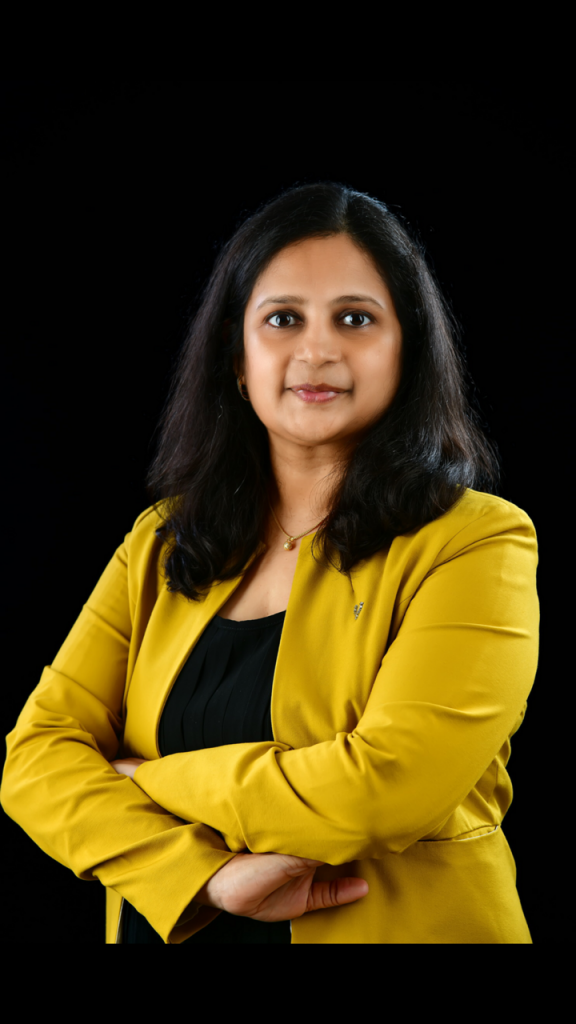
- Your professional journey showcases a diverse set of skills, ranging from ESG advisory to Lean Project Management. How do you integrate these skills in your current role as the Director at EC Council, especially in the context of global project management?
Integrating a diverse skill set like ESG advisory and Lean Project Management in a global project management role involves understanding the interplay between sustainability goals, operational efficiency, and project execution. For instance, in the EC Council, I leverage ESG principles to guide strategic initiatives, aligning them with the organization’s goals, while Lean methodologies ensure efficient project delivery and resource optimization. By embedding ESG considerations into project planning and execution, we not only meet business objectives but also contribute to sustainable outcomes.
2. As a mentor and member of the Vernacular Task Force for Atal Innovation Mission, how do you perceive the role of innovation in today’s rapidly evolving landscape, and what advice do you offer to aspiring innovators, particularly in the vernacular context?
Innovation, especially in vernacular contexts, is crucial for inclusive growth. My advice to aspiring innovators would be to deeply understand local needs, culture, and language nuances. Embrace simplicity, as innovation doesn’t always require complexity. Create solutions that are easily adaptable and address specific vernacular challenges. Foster collaboration within diverse communities to co-create solutions and ensure their relevance and adoption.
3. Your specialization includes consulting in Lean Start-Up Principles. Could you share a specific instance where applying these principles led to a significant positive impact on a startup, and what lessons can others draw from that experience?
Implementing Lean Start-Up Principles in a startup allowed us to swiftly iterate product ideas, validating assumptions and minimizing wasted resources. In one instance, adopting MVP (Minimum Viable Product) approaches helped us gather user feedback early, refining the product to align with actual needs. The lesson here is to prioritize learning from users, iterate quickly, and pivot based on validated learnings rather than assumptions.
4. Every journey is marked by challenges. Could you share a notable challenge or struggle you faced in your career and the key learning that emerged from overcoming it?
A notable challenge was managing a global transition project with tight timelines and diverse stakeholders. The key learning was the importance of effective communication, proactive risk mitigation, and adaptability. Flexibility in approach, coupled with open and transparent communication, ensured alignment among stakeholders and allowed for course corrections when needed.
5. Your involvement in community projects, specifically workshops for children, is commendable. How do you balance your commitments to community initiatives with your demanding roles in advisory and project management?
Balancing professional commitments with community initiatives involves effective time management and prioritization. I ensure that my involvement in community projects aligns with my core values and professional goals. It’s about allocating time efficiently, leveraging skills gained from professional roles to contribute effectively to community initiatives.
6. With experience in transition management, how do you approach and facilitate organizational changes, ensuring a smooth transition for both the team and the business?
Approaching organizational change involves a people-centric strategy. Communicate transparently about the change, involve teams in decision-making, and provide adequate support and training. Facilitate a culture of openness to change and continuous improvement. A phased approach, clear communication, and robust change management frameworks are vital for a smooth transition.
7. In the realm of digital marketing strategies, what emerging trends do you find particularly impactful, and how can businesses effectively leverage these trends to stay ahead?
In digital marketing, emerging trends like AI-driven personalization, video content, and voice search are impactful. Businesses can leverage these trends by tailoring personalized experiences, investing in interactive video content, and optimizing for voice search. Embracing data-driven strategies and agility in adapting to evolving platforms are key for success.
8. Environmental, Social, and Governance (ESG) is a key focus area for you. How do you see the integration of ESG principles influencing business intelligence, and what role can businesses play in driving positive change through ESG practices?
Integrating ESG principles into business intelligence involves capturing and analyzing ESG-related data to make informed decisions. Businesses can leverage this data to identify risks, opportunities, and stakeholder expectations, thereby enhancing their long-term sustainability and reputation. By aligning ESG practices with business strategies, companies can drive positive change and create value for all stakeholders.
9. Given your extensive experience, what advice would you give to the next generation of professionals and entrepreneurs, especially those aspiring to make a mark in ESG, project management, and innovation?
For the next generation, my advice is to be adaptable, continuously learn, and embrace a holistic approach to problem-solving. Strive for a balance between profit and purpose, recognizing the importance of sustainability and social responsibility. Embrace innovation, agility, and empathy in every endeavor, fostering a culture of positive change and continuous improvement.




 Allow notifications
Allow notifications
